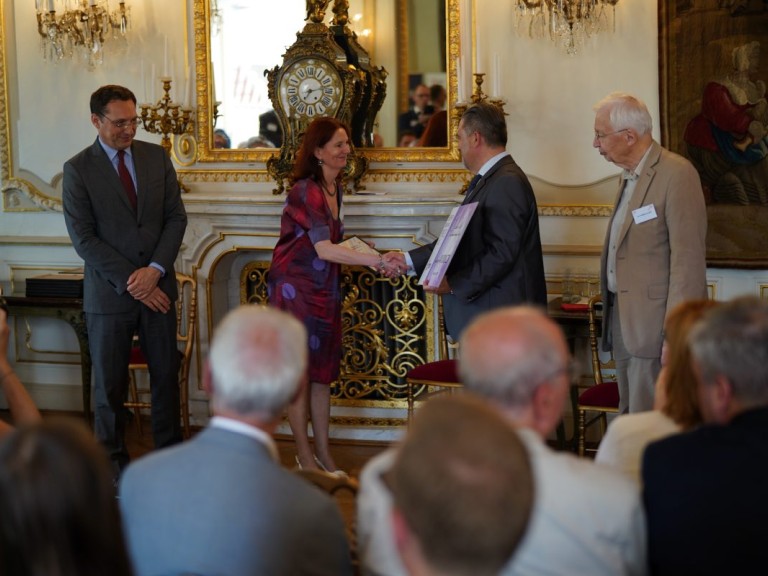The Henri Becquerel Prizes for Nuclear Research are awarded annually to the three best doctoral dissertations by PhD students from the Czech Republic. This year, for the first time in history, the first three places were taken by women: Jana Matoušková and Kateřina Děcká from the Faculty of Nuclear and Physical Engineering of the Czech Technical University in Prague and Denisa Kubániová from the Faculty of Mathematics and Physics of Charles University. The prestigious award was presented to them together with the French Ambassador to the Czech Republic Alexis Dutertre and Jean-Marie Lehn, winner of the 1987 Nobel Prize in Chemistry, by Roman Zdebor, Director of the Czech branch of EDF, a long-time partner of the awards.
"This year's results are beautiful proof that women not only belong in sciences, but can also excel in them. I am glad that the share of women in nuclear energy is gradually increasing in the Czech Republic. After all, EDF's bid to build new nuclear units in the Czech Republic is also led by a woman - Sarah Illouz," said Roman Zdebor at the award ceremony.
Young scientists are nominated for the award by universities or research institutes based on the quality of their scientific work during their doctoral studies. The work is then judged by a committee of Czech and French professors and scientists. Laureates receive a financial award and first and second prize winners also receive a scholarship from the French Embassy, which allows them to spend a month's research stay in a French laboratory of their choice.
"I will definitely use the scholarship, we have a collaboration with a French institute that runs a neutron imaging facility at a high power reactor," says Jana Matoušková, who won the award for her work on neutron imaging. This is a non-destructive method used to investigate the internal structures and material composition of optically opaque objects. Unlike X-rays, neutrons can penetrate up to a few centimetres of metals while sensitively detecting even small amounts of hydrogen.
"French companies involved in nuclear research and energy are cooperating with Czech scientists and institutions on a number of joint projects," says Denisa Kubániová, highlighting the international dimension of the award. She works in the Mössbauer Spectroscopy Laboratory at the Department of Low Temperature Physics at the Charles University, where she is involved in the development and use of magnetic nanoparticles for medical applications.
The Embassy of France in the Czech Republic has been supporting promising young scientists through scientific prizes since 1994, valuing their work and giving them the opportunity to build a network of contacts abroad. It thus encourages them to pursue a scientific career while helping to strengthen cooperation between France and the Czech Republic in their respective fields.

